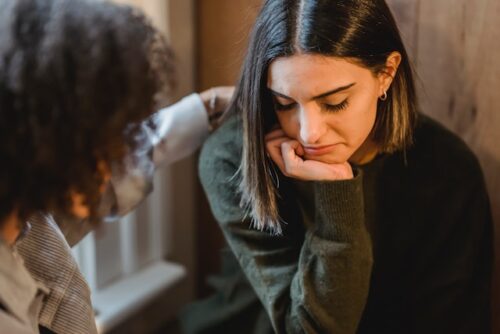Having anxiety can be the worse. There are too many things in your mind that you often cannot get rid of. You tend to feel uncomfortable and scared all the time. You don’t know why you always feel worried and frightened because sometimes there is just no reason for it. There are moments when you even deal with stressors differently, and you tend to become less aware of your thoughts and feelings. In some unfortunate cases, you experience panic attacks, especially if it is a diagnosable anxiety disorder. You begin to encounter different physical manifestations that are often taking a toll on your daily function.
Fortunately, there are ways you can better manage anxiety. The common one is self-care. As long as you stick to a healthy lifestyle and manage to get through your stressors, you can stay healthy and active. Another thing is medication. You can reduce your mental problems, such as anxiety and depression, with the assistance of medication prescribed by your doctor. Yes, there are times that medication alone does not work, but the idea of it reducing your anxiety symptoms is quite impressive. Then there’s therapy for anxiety (such as behavioral therapy). It is the most effective treatment of all since specific methods are designed to help you with your mental health issue.
And speaking of online therapy for trauma healing, it now works well with technology as it can be administered virtually. Thus, you can get assistance with guaranteed convenience. Let us try and understand more about it through these frequently asked questions.

Why can anxiety be a good thing?
Even though anxiety disorders can cause so much trouble and may seem useless sometimes, they serve a purpose. These feelings are a part of the natural way of dealing with stress. It represents a built-in warning system known as the fight-or-flight response meant to alert and protect individuals from danger. It allows people to react faster, especially in emergencies.
Anxiety can be helpful in some ways. But if ever you happen to experience a different level of emotional imbalance, you should consult your therapist right away.
What are the benefits of online therapy?
Online therapy is beneficial because it eliminates the costs associated with travel time only to attend a therapy session. It also decreases absences in meetings due to sickness or other reasonable or unreasonable excuses. Online therapy also allows clients to participate in therapy regularly in a convenient way as possible.
Is online therapy effective?
Yes. Online cognitive behavioral therapy is an acceptable, effective, and practical way of providing health care to individuals. That is according to a 2018 study published in the Journal of Psychological Disorders. The study initiate that online cognitive behavioral therapy or online CBT (cognitive behavioral therapy) was as efficient as a face-to-face treatment for mental health conditions such as major depression, panic disorder, social anxiety disorders, generalized anxiety disorder, post-traumatic stress disorder, obsessive-compulsive disorder, substance abuse, eating disorders, and other mental health issues.
How do I overcome social media anxiety?
Overcoming social media anxiety is entirely easy, especially if there is no addiction involved in it. You have to limit your exposure to social media intake in a structured way can be helpful. If it is not entirely necessary to spend time on social media, then give it a break. Instead, make time for yourself and focus on the things that make you laugh or smile–humor therapy for example.
On the other hand, you may also try exposure therapy, wherein the online therapist creates a safe space to “expose” the client to the things they fear. Spend bonding moments with the family through family therapy. Go for walks outdoors on your breaks when possible. Any healthy distractions that will keep you busy will keep you away from social media anxiety disorder.
What’s a good job for someone with anxiety?
Some of the best jobs for people with a social anxiety disorder include Accountant, Entrepreneur, Firefighter, Landscaper, Artist, Writer, House Painter, Computer Programmer, Pet Care Professional, Graphic Designer, Librarian, and Grounds Maintenance Worker.
Note that these are just recommendations. Depending on the severity of the person’s mental problem, these jobs may or may not work for him in some instances.
Is a little anxiety good?
A reasonable healthy amount of anxiety tends to provide a positive outcome since it provides survival value. It is considered good stress that keeps people motivated and excited about life. But be mindful, though, because too much excessive worry can immediately cause emotional and mental health conditions.

Is virtual counseling Safe?
Though there are tons of benefits online counseling can give to those with generalized anxiety, people need to be cautious with the process. An online stipulation may not be suitable for inexperienced practitioners. And unless the online therapy service is encrypted, people can benefit from the doubt of the possible danger of leaked private information.
But again, one should trust the process of communication. If online counseling can cut barriers at some point, then online counseling can still be a great option for those individuals who feel less open about their mental health condition.
What are the disadvantages of virtual counseling?
Disadvantages of online counseling for generalized anxiety disorder include a lack of visual and verbal cues and a lack of physical presence during therapy sessions. That is because of the less personal communication going on with each session between the client and the licensed therapist. Another disadvantage is computer concerns that include equipment and online internet service failures, and typing speed can limit the conveyance of information in chat-based sessions. Also, there can be an issue with privacy and confidentiality in a shared environment, and people may find it challenging to put complicated thoughts and emotions into written words.
Is self-help worth it?
The main purpose of self-help is not to immediately remove signs and symptoms of mental health conditions but rather to satisfy the mind and body in finding and healing negative emotions. The definitive goal of self-help is to encourage you to build a better life without too many worries and fears.
Self-help can work if you put enough effort into trying your best to become physically, emotionally, and mentally better.
What is the best virtual therapy site?
Here are a few online therapy platforms or online therapy sites you can consider that can provide mental health care. Betterhelp, Talkspace, Regain, Teen Counseling, Pride Counseling, Amwell, 7 Cups of Tea, and Doctor on Demand.
If you find these websites and virtual treatment companies unhelpful, you can always venture out to others that offer the same online treatment process and mental health services, particularly cognitive behavioral treatment.
How do you get treatment if you can’t afford it?
If you want to treat anxiety but you think you can’t afford therapy, you can first check with your health insurance. You can also try a community mental health center or a training clinic and ask about discounted rates if there are any, they might also be included in your insurance coverage. In case you do not necessarily need therapy, you can start reading self-help books or attending support groups. Always make sure to Re-evaluate your expenses.
Which is better, Talkspace or BetterHelp?
Talkspace is one of the best choices for individuals who want more privacy and do not want to live in video therapy sessions. This online therapy platform is more economical and less hassle. BetterHelp, on the other hand, is an ideal option for those interested in talking to someone on live video conversations. Usually, this is administered by a health expert and licensed professionals. The flexibility, convenience, and anonymity of BetterHelp make it an appealing option.

Is social media bad for mental health conditions?
Unfortunately, there is a strong association between heavy social media usage and an increased risk for mental health problems. Some of these are anxiety, depression, loneliness, self-harm, and suicidal thoughts. In some ways, social media promotes negative experiences to an individual already suffering from mental and emotional health.
Thus, it is necessary to understand social media’s role in your life before concluding its effectiveness or damage to your overall well-being. Always remember that everything that is too much can be dangerous.
Does deleting social media help with anxiety?
Yes. There is no excellent way to cope with anxiety other than just deleting the entire apps that trigger them. Just not using Twitter, Snapchat, Instagram, and Facebook for a month can bring you a happier feeling. It makes you feel more present in life.
Is Social Anxiety a mental illness?
Social anxiety disorder, or SAD is considered a mental health condition that is most known as social phobia. It is an extreme fear of being watched by others. This fear can affect school, work, and other day-to-day activities. It can also impact relationships in difficult situations as it cannot sometimes keep up with social relationship demands.
Coping Mechanisms for Online Anxiety
Online anxiety, like any other form of anxiety, can be a challenging experience to navigate. However, many coping mechanisms can assist individuals manage their online anxiety. Here are some effective strategies:
- Limit Social Media Use: One of the most effective ways to reduce online anxiety is to limit the amount of time spent on social media platforms and avoid shows portraying negative mental health on TV. Try setting boundaries for yourself, such as limiting social media use to specific times of day or for a set period.
- Take Breaks from Technology: Take regular breaks from technology to give your mind and body a chance to rest. Engage in activities that don’t require the use of technology, such as reading a book, going for a walk, or spending time with loved ones.
- Practice Mindfulness and Meditation: Mindfulness and meditation techniques can calm the mind and reduce feelings of anxiety. Try practicing deep breathing, visualization, or progressive muscle relaxation.
- Seek Support from Friends and Family: Aside from a virtual treatment provider, talking to someone you trust about your mental problem can be helpful. They can offer a listening ear and provide emotional health support.
- Challenge Negative Thoughts: When experiencing online anxiety, it’s common to have negative thoughts about yourself or your abilities. Challenge these thoughts by asking yourself if they’re realistic or if there’s evidence to support them.
- Self-Care and Stress Reduction: Engaging in self-care activities such as exercise, healthy eating, and getting enough sleep can reduce stress and anxiety levels. Engage in activities that you enjoy and that bring you joy.
Remember that managing online anxiety is a process and may take time. Don’t be afraid to seek professional assistance and treatment from licensed therapists and mental health professionals if needed. With the right tools and strategies, it is possible to manage anxiety and lead a fulfilling life. If you or you know someone suffering from severe mental problems, the more they have to avail the services of a licensed professional for the best anxiety treatment.
How to Help Someone with Online Anxiety
If someone you know is struggling with online anxiety, there are several things you can do to support them. First, it’s important to understand that their anxiety is real and valid. Avoid making dismissive comments or telling them to simply “get over it”. Instead, listen to their concerns and validate their feelings. Encourage them to take breaks from technology and engage in offline activities. Offer to spend time with them doing something that doesn’t involve social media or the internet.
Additionally, if you notice that they are being targeted by cyberbullying or virtual harassment, encourage them to report it to the appropriate authorities or platforms. Above all, be patient, compassionate, and understanding. If their anxiety is impacting their daily life, suggest they seek professional help from a mental health professional. By offering support and guidance, you can assist someone with online anxiety to manage their symptoms and feel more in control of their mental health.
The Bottom Line
In conclusion, online anxiety assistance can be a valuable resource for those struggling with a mental problem, providing convenient and accessible support from the comfort of your own home. While some may have concerns about the effectiveness or safety of virtual therapy, research has shown that it can be just as effective as in-person therapy for many individuals. Additionally, online therapy services can provide anonymity and flexibility, making it a good option for those who may have difficulty accessing traditional therapy due to scheduling or other factors. However, it’s important to do your research and find a reputable provider that meets your needs and preferences. Overall, online anxiety help can be a helpful tool in managing anxiety and improving mental health.
